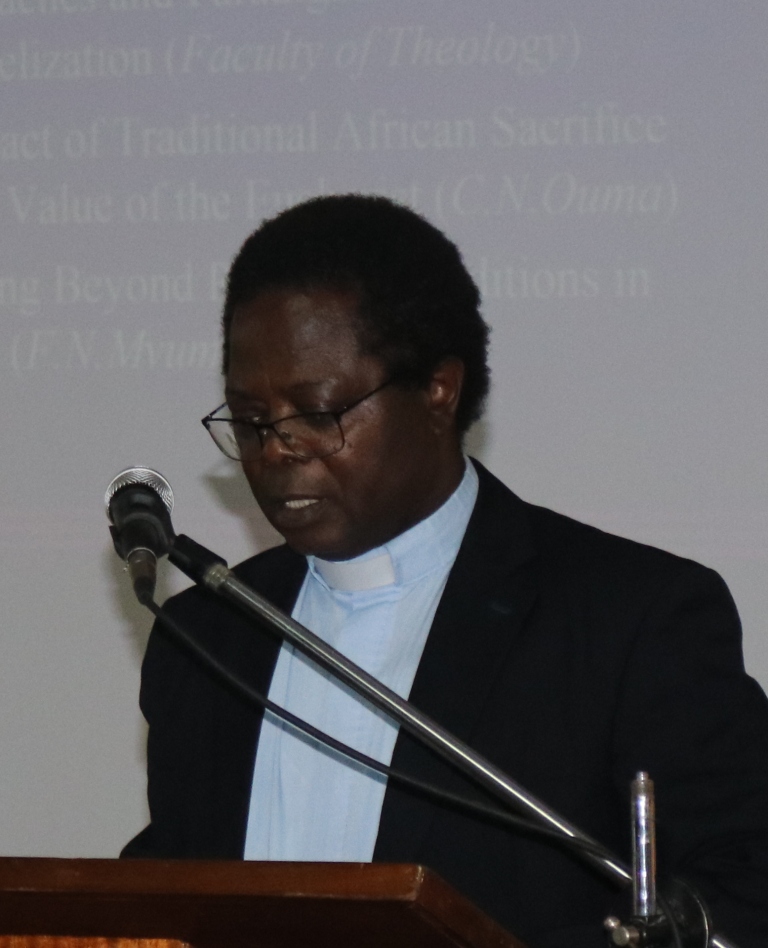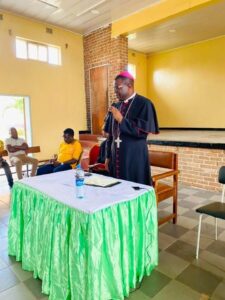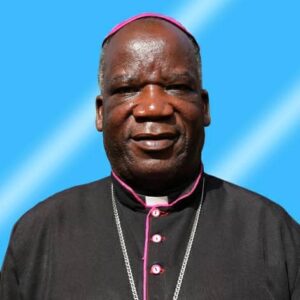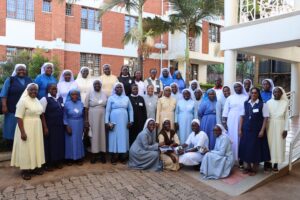KENYA: Prof Gichure underscore Importance of Publishing Among Students and Lectures at CUEA

Rev. Prof Peter Ignatius Gichure
Director of School of Graduates at the Catholic University of Eastern Africa (CUEA) Rev. Prof Peter Ignatius Gichure has said that one things that CUEA have not been conquered if compare with other universities in Kenya is because the University has published a lot. He therefore encouraged both students and lectures to put more efforts into research and publishing.
“We want to emphasize the requirement for publishing in the old adage, publish or perish still stands,” Prof Gichure said during the book launch at CUEA on Friday, May 3. He indicated that the requirement for publishing especially among post graduate students is currently being actualized in Kenya following the Government’s directive that those undertaking Master’s Degree here in country must publish at least one article before they graduate while those doing PhD, should have published at least two articles either in a chapter of a book or in the referenced journal before they can be cleared for graduation.
“For the Faculty, for you to progress upwards you must keep on publishing and of course you should know that this is the harmonised criteria for promotion,” Gichure who is currently Acting DVC Academics at CUEA explained adding that those publishing must look out for credible publishers and also credible journals. “There are those that we call predator journals and we should be able to avoid them.”
Prof. Gichure also encourages both students and lectures doing their research work to consider as part of references books published by African authors. “Once we have book like the one we are launching today, people will be telling you to buy them and read; but I am going further, it would be very difficult for you to progress as an African scholar when you do not quote fellow African scholars in your countries. This is something that should take into serious consideration so that Africa can grow.”

Speaking at the same occasion, Director of AMECEA Gaba Publication Rev. Dr. Jordan Nyenyembe appealed to both students and lecturers at CUEA to not only purchase the three books which were being launched but also to imitate the spirit of the authors of researching and disseminating useful knowledge to the world.
“This occasion is inspired by the mission statement of CUEA which seeks to promote scientific research, quality teaching and community service. Scientific research takes precedent because, research is at the heart of any University’s existence,” Dr. Nyenyembe explained adding that AMECEA Gaba publication and CUEA Press, in its commitment to add value to the University’s mission, publishes books that have exhibited excellence in research and also address the burning issues of our society.
“As adage goes, knowledge attained and utilized is power; educators are therefore the greatest consumers and producers of research. It is a common University tradition to disseminate research findings through publications. As such, there are three organs that are part and parcel of the tradition of the university at all time: the lecture halls made up of lecturers and students; publishing houses of the university composed of editors, graphic designers, typesetters, lecturers and students; and finally the library made up of the librarian, lecturers and students. Lectures and students overlap the composition of the three organs of the university because they are at the heart of creation and dissemination of knowledge,” Dr. Nyenyembe expounded adding that “It is no wonder that at CUEA Main Campus and Gaba alike, these three organs always exist together.”
He therefore invited students, priests, Religious men and women who are developing their research work and manuscript to make use of the editorial skills at Gaba publication because any unchecked grammatical errors as well as traces of plagiarism done by say a Church minister in his or her writing can ultimately bring to disrepute the minister and the Church within the academic as well as ecclesiastical cycles.
∽End∽
By Pamela Adinda, AMECEA Online News


